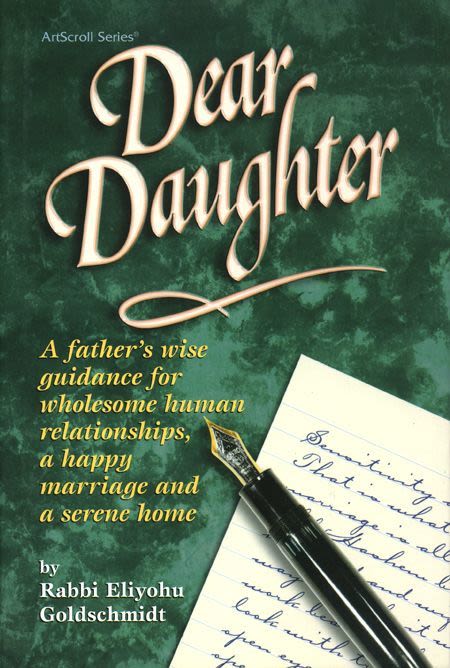
American Dream
A new gadget, new car, or even a new house doesn’t bring lasting happiness. So why are we always chasing what we don’t have instead of being happy with what we do have?

Let me tell you the story of two brothers. One afternoon, they were playing with their toys, when the younger brother suddenly desired the toy that the older brother was playing with. What do you think happened? Ladies and Gentlemen, welcome to the Reckles Rumble 3000! In this corner, we have Yehuda, age 6, holding the coveted monster truck! In the other corner, we have Yosef, age 3, ready to lunge at his opponent….uh, oh, I see the angry vein in the neck popping out! And… go! Not only am I the announcer, but I am also the lucky referee who gets her fair share of kicks and punches. (God knows I probably deserve them!) Oh, yes, let’s not forget the faithful, ever-laughing, roly-poly fan of this tag team of opponents, Yaacov, age 15 months! He’s all too eager to jump into the rolling mass of kicking legs and swinging arms.
After several rounds of our daily Battle Royale, I usually end up taking that toy away until they decide to share it nicely. As a result, I have a huge stash of confiscated toys on the top of my bookshelf. Will they ever make their way back from the other side? Only time will tell.
In the meantime, why am I sharing such a common story with you, aside from the fact that everyone can relate to this situation? I remember all too well having to go through my own battles with my sister over clothes that we both wanted from each other. To be fair, she was always the one who started! Since my parents weren’t disciplining her, in my mature state of mind, I decided to take matters into my own hands- literally. That was how she ended up with the nail marks on her forearms, and I ended up with bruises and the like on various parts of my body. I think I even recall getting (or was it giving?) a few bite marks! But seriously, isn’t it a strange phenomenon that we all go through?
Don’t think this “I want what I don’t have” stage begins and ends in childhood. Oh, no, it sure doesn’t! It continues, usually threatening to trap our minds in its clutches every moment of our adult lives! This is one of the most powerful weapons of the Evil Inclination. How many people suffer from self-imposed depression because they compare what they have to others? How many are plagued with nagging thoughts of, “Why does he have a nicer house than I do? If I had that nice house, my life would be so much better. If I just had that fancy sports car, my life would be complete.” Some may even go the extra mile and say, “If I had Mr. Smith’s wife, my heart would be happy.” Oh, boy.
Says who? Who made it our place to decide what we need and don’t need in life? Were we appointed as Ruler of the World? On what grounds do we justify our desire for things that we don’t have, and believe that the attainment of those things is the key to our happiness? Time and time again we see that money doesn’t bring happiness. A new car doesn’t bring lasting happiness. A new relationship doesn’t fill that void that we try to  run from and pretend doesn’t exist. So why are we always chasing what we don’t have instead of being happy with what we do have?
run from and pretend doesn’t exist. So why are we always chasing what we don’t have instead of being happy with what we do have?
One answer can be clearly seen in the culture in which most of us life. In western society, physical pursuits are taught to be the main goals in life. You’re not living the American Dream unless you have a big house with a big car and a big salary. First of all, who came up with this American Dream nonsense? Hallmark? Probably- they came up with most of the unnecessary money-draining holidays we have.
Why do we feel the need to automatically adopt this American Dream into our psyches? Well, for one thing, most of us were raised that way. You go to school, study hard, get a good job, get married, have 2.4 kids, and eventually retire. The fine print that most of us didn’t read until it was too late was: you force yourself to learn a trade that you’re not passionate about so it will provide you with a life of unnecessary luxuries, then you work away the prime hours of your life (including plenty of overtime) in a high-stress job, dreaming about those two precious days that you don’t have to work. Then, you buy a house that’s beyond what you can afford, but it’s so nice, and what’s the American Dream without a nice house? Then, you work more to pay off that ridiculous mortgage. Oh, and don’t forget about those blissful two weeks of vacation that are probably spent doing fix-ups around the house instead of actual relaxation. Retirement? Who can retire with all of the credit card debt and college debt and so on? And what about the kids? Well, raising kids is certainly no walk in the park, and they come with their own list of expenses: school, car, more school, new car, apartment…. Is this the American Dream? It sounds more like the American Nightmare to me!
The other reason we feel the need to desire what we don’t need is that it is actually already in our psyches. In reality, the American Dream existed long before America. Let’s travel back in time to The Garden of Eden and discover the cause of our corrupted thinking. And now begins the story of “Eve and the Snake”:
One day, as Eve was walking along, minding her own business, the Snake (Evil Inclination) came to her and started a conversation. It probably went something like this: There she was, a vision of beauty and innocence, strolling through the Garden. The sun was shining on her long, braided hair, and the butterflies danced around her as she happily hummed to herself. Sneaking out of the shadows comes the Snake, with evil intentions. “Hey, Eve, what’s up?” he asks, feigning nonchalance.
“Nothing, snake. What’s going on with you?”
“Nothing much…it sure is nice weather we’re having today….Hey, you know what I heard?” “No, snake, what did you hear?”
Okay, hold it right there! Here we can see that the first seeds of Lashon Hara, or evil speech, were planted. What’s the problem with listening to what the snake wanted to say? The tricky thing about evil speech is that it is usually a true thing someone is saying about another. The problem is that the information conveyed is with the intent to cause the listener to negatively judge the person being spoken about. See, even gossip can be traced back to the beginning! On with our story.
“Eve, did you know why God told you that you can’t eat from the Tree of Knowledge?”
“No, snake, why?”
“Because then you would be like Him- all powerful. And, you would know the difference between right and wrong.”
“What?! You mean there is something He has that I don’t?!”
“Uh, huh,” says the snake, as an evil grin slowly spreads across his face. He has found her weak spot- from there, we know how the story plays out.
Let’s fast-forward a few thousand years to the days of Queen Esther and the miracle of Purim. Haman, the Royal Visier to King Ahaseurus, had everything a person could ever desire. He had even more wealth than the king (maybe even more wealth than Carlos Slim Helu!), he had tremendous power, he had ten sons, a fleet of Rolls Royce Camels, and the list goes on and on… So what led to his downfall? One day, as he entered the palace, everyone bowed down to him- except for one person. That one person was Mordechai, leader of the Jews. He later complained bitterly, “It’s all worthless! All of my money, power, everything- it’s worthless!” Hold it- one person doesn’t bow down to you and everything else means nothing? Are you placing more importance on one person than everything else combined in your life? We may look at this and say, “This guy is a nutcase.” For sure he was! But you know what? We all have the same mentality to one degree or another (hopefully minus the genocidal tendencies).
What was the common factor between Eve and Haman? It was the desire for the one thing they didn’t have. The world was theirs, literally, but it wasn’t enough because it wasn’t a complete 100%. How many of us have this same issue? Yes, we may say, “See, it’s not my fault! I was programmed this way!” Well, I tried that excuse myself, and it’s really not a valid one. Why not? We were given a tendency for forbidden desires in order to overcome that tendency. We are supposed to control our desires; our desires are not supposed to control us! Every challenging character trait we have is not meant to be a permanent obstacle. It is meant to be a stepping stone that will help us achieve our next level of personal correction and eventual perfection.
Yes, the challenges are extremely difficult; many times they seem impossible to overcome. But we musn’t forget that we have a piece of God within us. We also have a direct connection to God that allows us the privilege of asking Him for help whenever we need it. God is on speed-dial, available for us any time we need him. This is the power of personal prayer- at any time, the hotline is open, and it’s free! God doesn’t charge $3 for the first minute and 97 cents each additional minute so you can speak with him! So what are you waiting for? Look at our world falling apart all around us- we have crumbling economies, hurricanes, earthquakes, tsunamis, massacres of innocent people. What’s it going to take for us to hear God yelling at us from the other end of the phone line?! Just pick up the proverbial phone and talk! It’s free! (Maybe I should have gone into advertising.)
Here we are, being hurled one tribulation after another, yet we continue to maintain our stubborn attitude of “I didn’t deserve this” or “There is no justice in the world”. Let me ask all those stubborn thinkers out there- what do you have to lose by trying to look at the world in a different light? What is so horrible about admitting the possibility that God really does run the world and does everything for our best? Then we would have to give up pointing the finger and saying, “It’s the other guy’s fault.” We would be forced to take responsibility for our actions and own our consequences- that might be too painful for some to bear. But is it really better to suffer other consequences instead? Is it really better to God forbid get an illness or get into an accident and never see the big picture? Is it better to blame God and never realize that it was for your best? Is it preferable to hold a lifetime of pain, bitterness, and unanswered questions in your heart?
Rabbi Brody is constantly saying, “God is sending us wake-up call after wake-up call to come back to Him. He is going to cleanse our souls of all the spiritual buildup that we have amassed over our lifetimes, whether we like it or not. Wouldn’t it be better to do a voluntary cleansing ourselves through teshuva and personal prayer than to have God do it for us?” Though I may seem to have gone off the main subject with this side rant, I actually haven’t. There is indeed a connection between forbidden desires and returning in teshuva to Hashem. If we desire something we don’t have and we torment ourselves with why we don’t have it, then we are expressing a lack of emuna in the fact that Hashem has given us exactly what we need when we need it. Emuna is a concept that must be internalized every day. It’s like going to the gym- we can’t expect to have a perfect body after just one workout. We also can’t expect to have unshakable emuna after one personal prayer session. Though you might feel like a true connection to God is a million miles away, trust me, it’s closer than you think. What helped me to stay on the emuna track day after day (and still continues to do so) are the CD lessons given by Rabbi Brody. Two particular favorites that I enjoy when I feel like I’m back at square one or if I just need a boost are “Emuna with Love” and “Learn to Say Thank You”. Strengthening our emuna is the key to letting go of our forbidden desires and creating genuine happiness and contentment with what we have.












Tell us what you think!
Thank you for your comment!
It will be published after approval by the Editor.